Israel in quandary as Palestinian resistance alters equation: Analyst
The heroic resistance of Palestinian groups against the latest bout of Israeli aggression has fundamentally altered the equation in the conflict and left the occupying regime in a quandary, according to a political analyst.
“The equation in the Palestinian battle for liberation has been fundamentally altered because of the strength of the resistance, the unity of the Palestinians and the rise of the Palestinian nation everywhere,” Ramzy Baroud, a Palestinian-American journalist and the editor of the Palestine Chronicle based in London, told Press TV on Saturday.
“This situation is placing Israel in a quandary. It’s a war that it cannot win but also cannot lose,” he added.
The Palestinian resistance groups have fired more than 1,500 rockets toward different cities in the occupied territories over the past week in response to Israeli attacks on civilian areas in the besieged Gaza Strip.
Accepting a proposed ceasefire, Baroud said, would have significant political consequences for the Israeli regime and shatter the notion of its self-proclaimed “invincible army.”
“For the first time, in the history of the Israeli occupation of Palestine, it is no longer Israel alone that is making and playing by its own rules,” the analyst noted. “From a geostrategic perspective, Israel is in a much weaker position than it has ever been before.”
Baroud also criticized the West for failing to take a stronger stance against Israeli aggression and said the silence exposed their political and moral bankruptcy.
“The popular revolt in Palestine has taken everyone by surprise including Israel’s own allies,” he said. “Historically, Israel’s Western supporters have proven to be morally bankrupt, but politically bankrupt as well. Washington and other Western governments continue to parrot the same old line about Israel’s right to defend itself, Israel’s security, and the need to return to the negotiation table and such.”
He added that “This is an archaic and useless position because it doesn’t add anything new to the old empty discourse. If anything, it merely demonstrates their inability to evolve politically and to match the dramatic changes underway.”
Gaza and the Palestinian territories have been simmering with anger over Israel’s land grab policies in occupied Jerusalem al-Quds as well as the regime’s desecration of the al-Aqsa Mosque complex, the third holiest site in Islam.
The tensions spiraled into a broader conflict days after the regime in Tel Aviv launched a heavy-handed crackdown on Palestinian worshipers at al-Aqsa Mosque during the final days of the holy fasting month of Ramadan.
Since then, the Israeli military has been launching large-scale airstrikes across Gaza, razing homes and civilian infrastructure to the ground. The regime’s artillery and tanks have also been targeting the blockaded coastal enclave.
Despite international calls for an immediate halt of all hostilities, including from United Nations chief Antonio Guterres, Israeli prime minister Benjamin Netanyahu has pledged that the onslaught against the Gaza Strip will continue.
At least 174 Palestinians, including 47 children and 29 women, have been killed in Gaza in the past week. Nearly 1,000 others have also been wounded.
Palestinian resistance fighters have been responding to Israel’s aggression through massive barrages of rockets and missiles. They have also brought drones into the equation.
Much to Israel’s surprise, rocket launches have largely overwhelmed the regime’s so-called Iron Dome missile systems and hit several cities across the occupied territories, leaving eight people dead and dozens of others injured so far.
The United Nations Security Council is due to meet later on Sunday to discuss the situation after the US blocked an earlier session proposed by Russia and other countries on Friday.
‘Abhorrent’: Oxfam says only 12 trucks delivered aid in North Gaza since Oct.
VIDEO | Leader receives religious eulogists on Hazrat Fatima birth anniv.
Pope Francis slams Israel’s ‘machine-gunning’ of Gaza children
US hostage-taking of Iranian nationals violation of intl. law: Deputy FM
VIDEO | Carol Singers for Palestine on London’s Parliament Square
Ansarullah says ‘Israeli terrorists’ incapable of confronting Yemen, warns of secret weapons
VIDEO | Yemenis praise the military for its successful operations against Israel
VIDEO | Israel continues to bomb Gaza homes


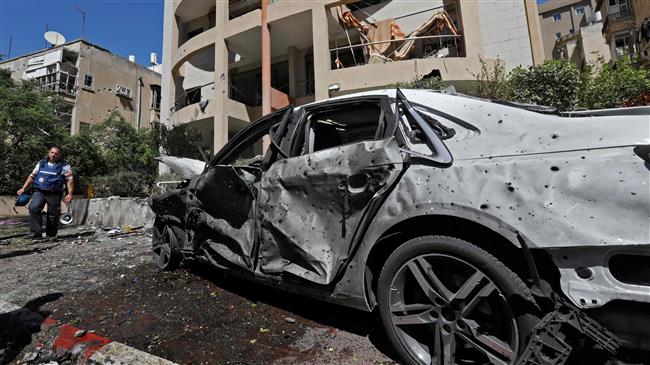


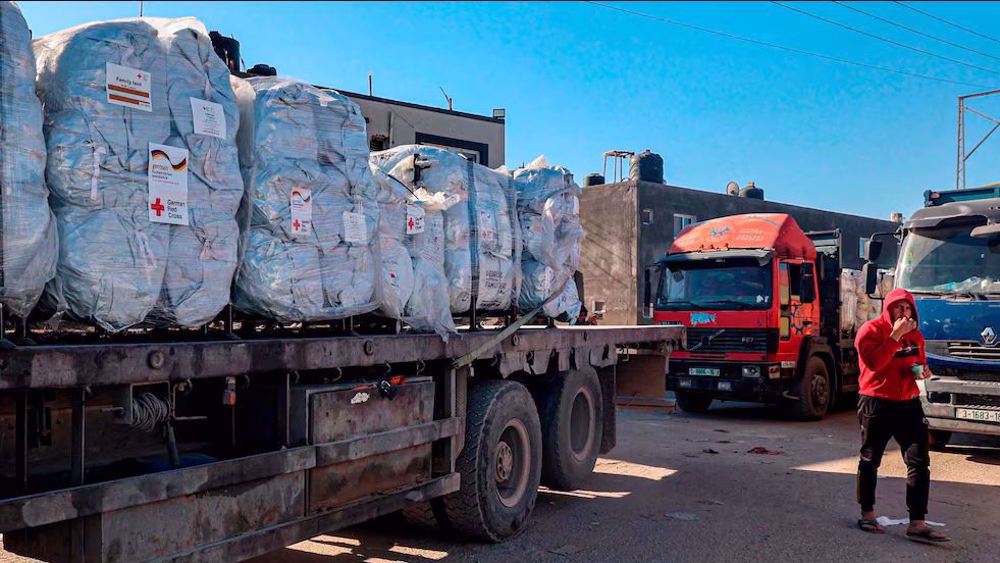
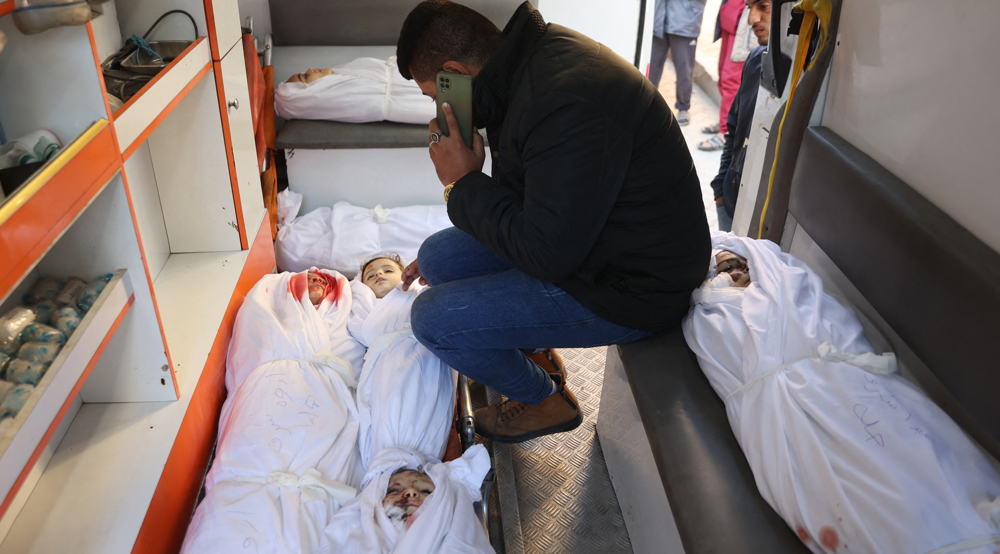
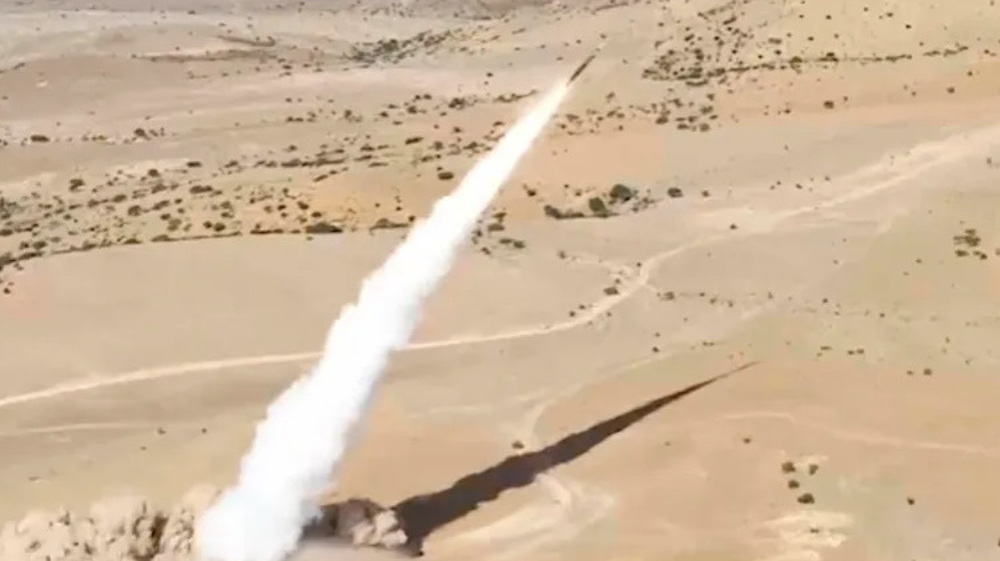



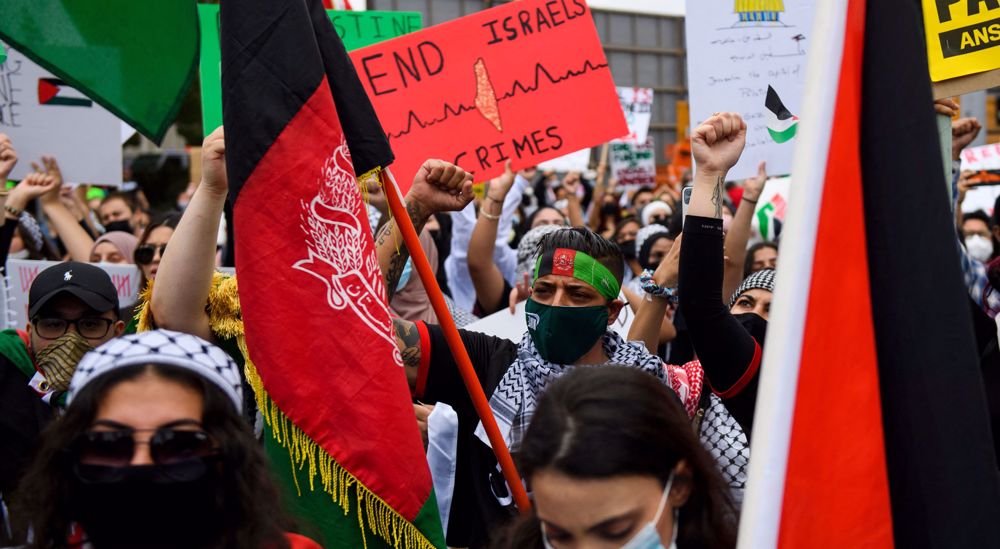
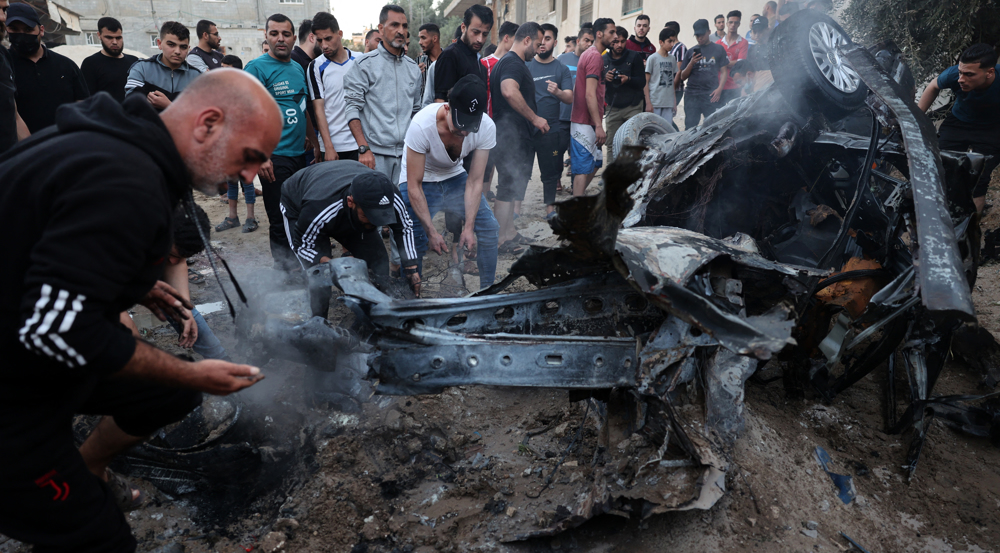
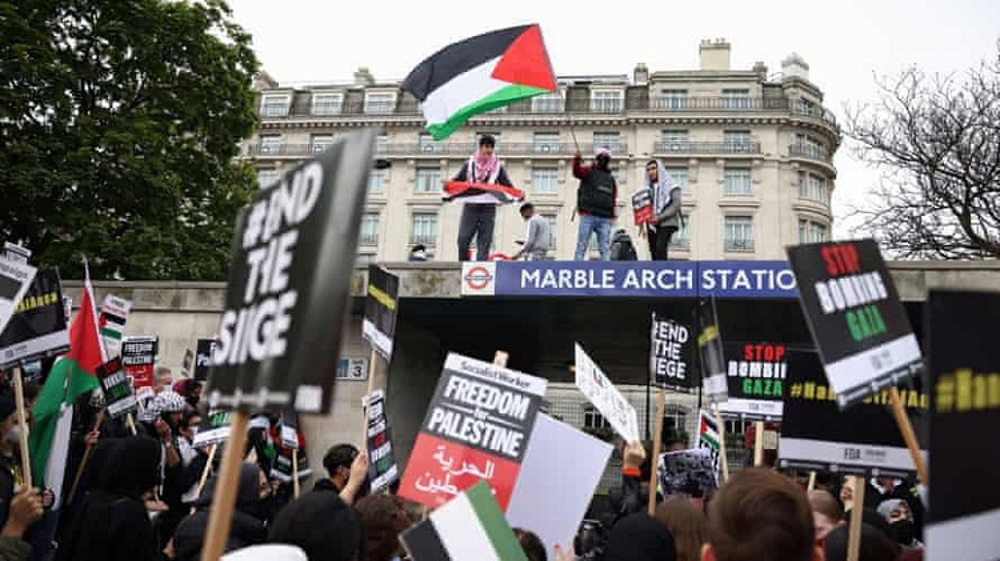
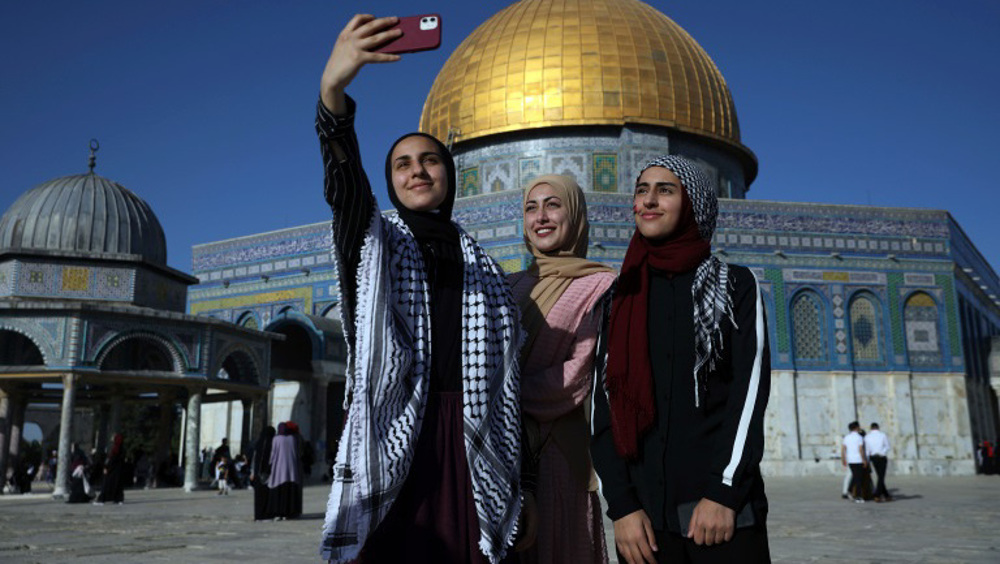
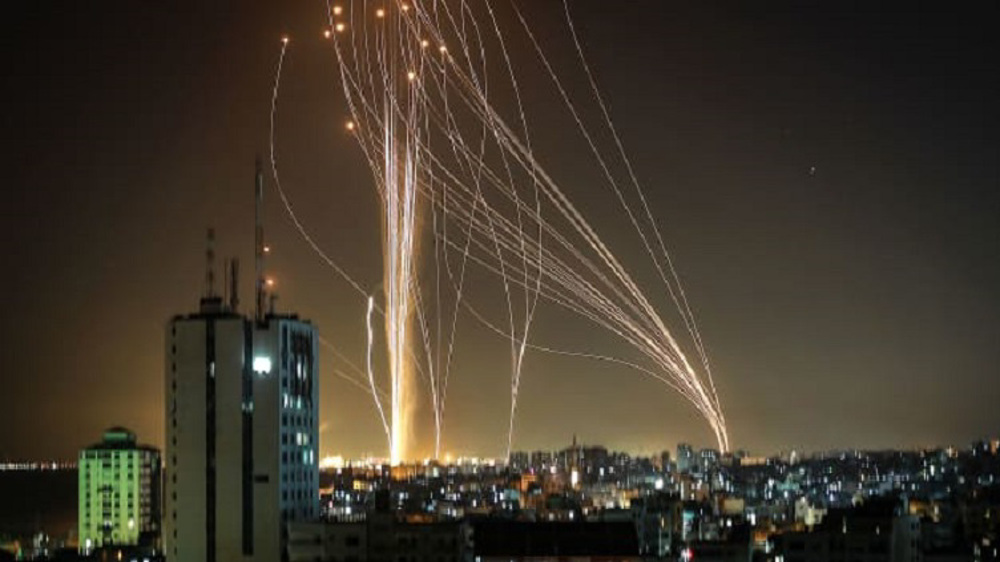
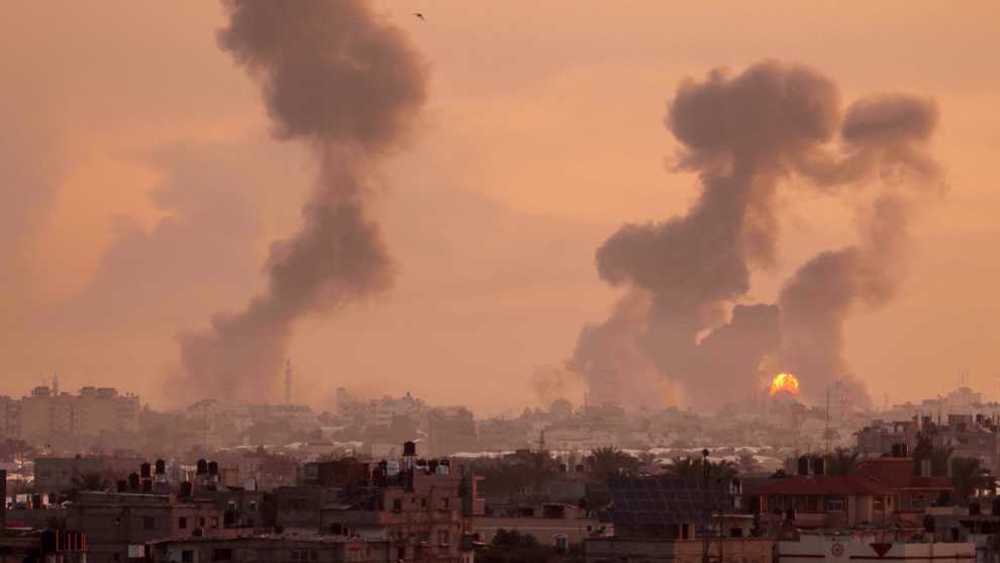
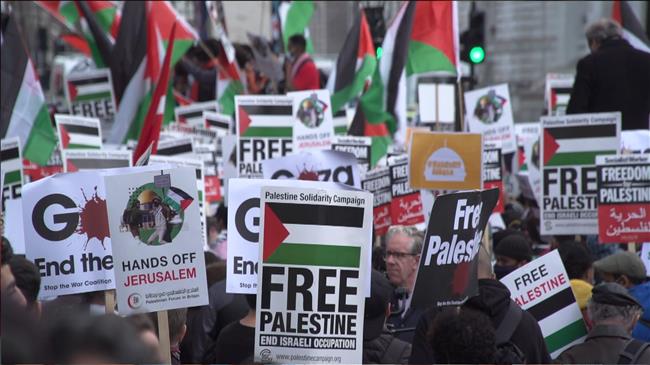

 This makes it easy to access the Press TV website
This makes it easy to access the Press TV website